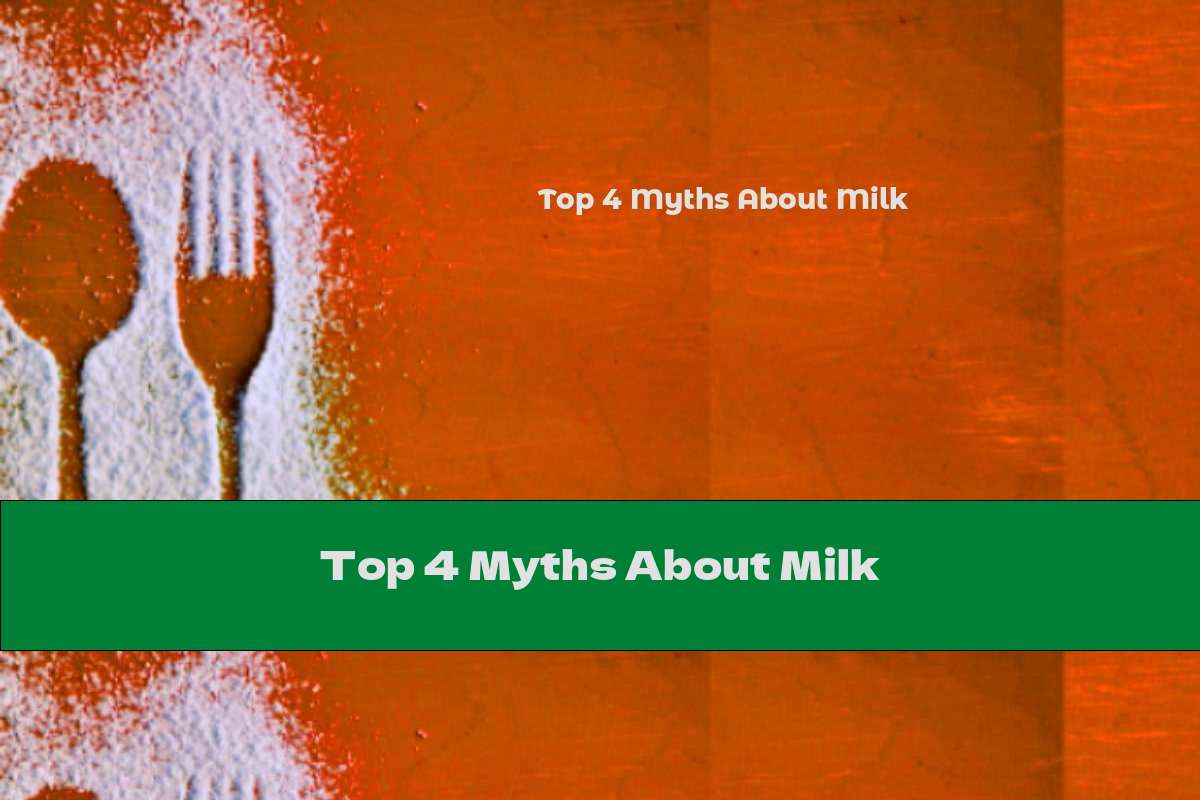Top 4 Myths About Milk
 Author: Dean Rouseberg
Time for reading: ~2
minutes
Last Updated:
February 21, 2026
Author: Dean Rouseberg
Time for reading: ~2
minutes
Last Updated:
February 21, 2026

In this article, learn more about Top 4 Myths About Milk. Does milk really harm adults, cause stomach aches, allergies and diarrhea?.
Does milk really harm adults, cause stomach aches, allergies and diarrhea?
Many are wary of milk and exclude it from their diet. The reason for this is the myth that milk is contraindicated for adults, that it is difficult to digest, causing fermentation processes in the intestines, the growth of pathogenic fungi, and the accumulation of toxins in the body. It is the cause of allergies, autoimmune diseases, flatulence and other terrible ailments...
But is it so? After all, any nutritionist will say that milk is a source of nutrients that should not be neglected. Therefore, we decided to debunk the 4 most popular myths about milk.
Age factor
Myth: "Only children can drink milk, an adult's body does not absorb it."
According to doctors, milk is perfectly absorbed by both adults and children. Milk sugar (lactose) is broken down by lactase. The presence of this enzyme does not depend on age: it is produced in sufficient quantities in both children and adults.
The exception is people whose production of this enzyme is impaired (but there are relatively few). By the way, this does not prevent them from consuming some fermented milk products - kefir, yogurts, cheeses and others.
You can conduct an experiment: drink a glass of milk and see what happens. If you do not feel any changes in your well-being, then you have enough lactase.
Revolution in the stomach
Myth: "Milk causes diarrhea, flatulence and stomach aches in adults."
It happens. If a person does not produce enough lactase enzyme, which we wrote about above. Allergic reactions can occur in both children and adults. And even the same man at different ages can tolerate milk differently. In short, everything depends on the individual characteristics of the body.
Another reason for "intestinal revolutions" is excess. If you drink a whole liter of milk at once, the consequences can be unpredictable. You need to know the measure and remember that milk is not a drink, but food, which must be consumed correctly. And what is important - separate from other products.
Won't it be greasy?
Myth: "Milk makes you better."
Only if you drink it in liters, 5-6% or more fat. If you buy a product with 2.5% fat and enjoy it in moderation, you are not at risk of gaining weight. The calorie content of milk (2.5%) is 52 kcal per 100 g. In addition, it is rich in useful unsaturated fats, necessary for the vital activity of the body.
Pure benefit
Myth: "Milk contributes to the "slagging" of the body."
Milk contains a huge amount of potassium and, on the contrary, contributes to the removal of "garbage" and excess fluid. Therefore, this product is recommended for people suffering from osteoporosis. And everyone who has increased swelling is also advised to drink. Milk (due to the fact that it is a weak agent of gastric secretion) is also recommended for people with ulcers, gastritis and people with increased stomach acidity. Milk is useful for diseases of the gall bladder and bile ducts, chronic liver diseases and atherosclerosis. And it helps to lower blood pressure in hypertensive patients. Cardiologists advise people with heart disease to drink milk and increase the amount of vegetables and fruits in their diet.
Related Articles
- The Power of Milk: Nutritional Benefits for Health and Wellness
- The Ultimate Guide to Milk Powder in Nutrition: Benefits, Recipes, and More
- The Ultimate Guide to Shaken Espresso Oatmilk: Benefits and Recipe
- The Importance of Breast Milk Color in Nutrition: Understanding Nutritional Insights
- Nutritional Benefits of Cow Milk: Importance of Calcium, Vitamins, and Protein